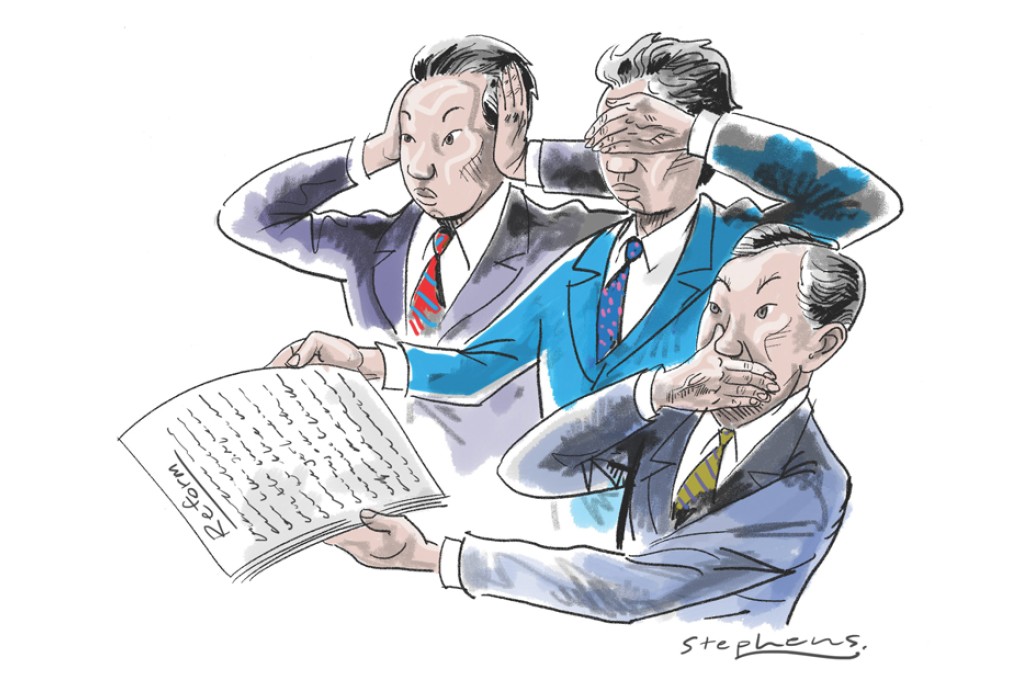Selective report on electoral reform consultation further divides Hong Kong
Simon Young says after months of work to seek public views on electoral reform, the government's selective reporting of the result fails to move Hong Kong towards a consensus

In preparing its two recent political reform reports, the Hong Kong administration's strategy was to avoid provocative statements and appear neutral and open. Notice no references to the State Council's recent white paper. The aim was to ease tensions, at least until the Standing Committee of the National People's Congress delivered its decision in late August and took the blame for any consequences.
Judging from the public reaction to the reports, the strategy appears to have flopped.
There are at least four reasons why the reports do not get us any closer to reaching an agreement on universal suffrage for the chief executive.
First, there is the preoccupation with patriotism (love for country and Hong Kong) and confronting the central government. Apparently the "mainstream opinion" is that the chief executive should be a person who loves the country and loves Hong Kong, and does not confront the central authorities. But if Hong Kong is to be a truly democratic society, the chief executive must be prepared to confront the central authorities (not necessarily an open confrontation) as part of being accountable to the special administrative region.
We would expect any chief executive to confront the central government if, for example, mainland officials were deliberately acting in violation of the Basic Law. As a first principle, universal suffrage in Hong Kong requires the acceptance that the chief executive might need to be confrontational with the central and other authorities in order to discharge his or her duties under the Basic Law.
Second, the government needs to be able to capture public opinion in a fair and proper manner if it is to convince two-thirds of legislators to accept its reform proposal.
However, the consultation report reveals its inability in this regard. There are repeated references to "the mainstream opinion" without an explanation of how the opinion has been ascertained or defined. Where sources are cited, it is selective in finding support for the so-called mainstream opinions.
